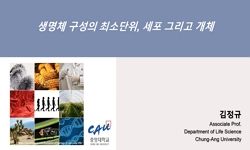Acetaminophen (ACT) and ibuprofen (IBU) are most frequently detected pharmaceuticals in aquatic ecosystem, and they can induce various harmful effects on aquatic biota. However, the toxicity of ACT and IBU on marine biota and their underlying toxic me...
http://chineseinput.net/에서 pinyin(병음)방식으로 중국어를 변환할 수 있습니다.
변환된 중국어를 복사하여 사용하시면 됩니다.
- 中文 을 입력하시려면 zhongwen을 입력하시고 space를누르시면됩니다.
- 北京 을 입력하시려면 beijing을 입력하시고 space를 누르시면 됩니다.

기수산 물벼룩 Diaphanosoma celebensis 에 대한 아세트아미노펜과 이부프로펜의 급성독성과 해독, 항산화 및 탈피 연관 유전자의 발현에 미치는 영향 = Acute Toxicity of Acetaminophen and Ibuprofen and Their Effects on the Expression of Detoxification, Antioxidant System, and Ecdysteroid Signaling Pathway-related Genes in the Brackish Water Flea Diaphanosoma celebensis
한글로보기https://www.riss.kr/link?id=A109436553
- 저자
- 발행기관
- 학술지명
- 권호사항
-
발행연도
2024
-
작성언어
Korean
- 주제어
-
등재정보
KCI등재
-
자료형태
학술저널
- 발행기관 URL
-
수록면
147-159(13쪽)
- DOI식별코드
- 제공처
-
0
상세조회 -
0
다운로드
부가정보
다국어 초록 (Multilingual Abstract)
Acetaminophen (ACT) and ibuprofen (IBU) are most frequently detected pharmaceuticals in aquatic ecosystem, and they can induce various harmful effects on aquatic biota. However, the toxicity of ACT and IBU on marine biota and their underlying toxic mechanisms are not well-understood. Thus, in this study, we investigated acute toxicity of ACT and IBU on the brackish water flea Diaphanosoma celebensis, and subsequently, transcriptional modulation of genes related to detoxification, antioxidant system, and ecdysteroid signaling pathway was analyzed. Acute toxicity test showed ACT and IBU have relatively less acute toxicity on D. celebensis (48-h LC50ACT: 120.72 mg/L and 48-h LC50IBU: 212.23 mg/L). After exposure to ACT, the expression of most detoxification-related genes was down-regulated, but the expression of cytochrome P450 (CYP) 360A8, glutathione S-transferase (GST) theta, and ATP-binding cassette (ABC) transporter B1 was significantly up-regulated following IBU exposure, which suggests that ACT and IBU might differently affect detoxification system of D. celebensis. However, the expression of most genes related to antioxidant system and ecdysteroid signaling pathway was significantly decreased following ACT and IBU exposure. These findings suggest that ACT and IBU may be metabolized by different mechanisms and have potential toxicity on redox homeostasis and reproductive process of marine zooplankton.
국문 초록 (Abstract)
아세트아미노펜(acetaminophen, ACT)과 이부프로펜(ibuprofen, IBU)은 수생환경에서 발견되는 대표적인 의약품으로, 다양한 수생생물에서 생물독성영향을 나타내는 것으로 알려져 있으나 이들이 해...
아세트아미노펜(acetaminophen, ACT)과 이부프로펜(ibuprofen, IBU)은 수생환경에서 발견되는 대표적인 의약품으로, 다양한 수생생물에서 생물독성영향을 나타내는 것으로 알려져 있으나 이들이 해양생물에 미치는 독성영향은 잘 알려져있지 않다. 이에 본 연구는 ACT 및 IBU가 기수산 물벼룩 Diaphanosoma celebensis에 미치는 급성독성영향 및 해독, 항산화, 탈피 연관 유전자의 발현에 미치는 영향을 조사하였다. 급성독성시험 결과, ACT 및 IBU는 D. celebensis에 상대적으로 낮은 급성독성영향을 나타냈다 (48-h LC50ACT: 120.72 mg/L 및 48-h LC50IBU: 212.23 mg/L). 해독효소 유전자의 발현은 ACT 노출 시 모두 유의하게 감소한 반면 IBU 노출 시 Cytochrome P450 (CYP) 360A8, glutathione S-transferease (GST) theta, 및 ATP-binding cassette (ABC) transporter B1 유전자의 발현이 증가하였으며, 이는 ACT 및 IBU가 해독 경로에 미치는 영향이 서로 다를 수 있음을 의미한다. 반면 ACT 및 IBU의 노출은 공통적으로 D. celebensis의 항산화 및 탈피 연관 유전자의 발현을 감소시키는 것으로 나타났다. 본 연구의 결과는, ACT 및 IBU가 서로 다른 작용기전을 통해 대사될 수 있지만, 공통적으로 해양 동물성플랑크톤의 산화환원 항상성과 생식경로에 잠재적인 독성영향을 나타낼 수 있음을 시사한다.
동일학술지(권/호) 다른 논문
-
흰다리새우 양식장 미생물 조성 분석 및 수질 관리와 미생물의 역할에 대한 연구
- (사)한국해양생명과학회
- 김철원
- 2024
- KCI등재
-
종밋 Arcuatula senhousia 의 계절적 변화에 따른 생식소 발달
- (사)한국해양생명과학회
- 김순구
- 2024
- KCI등재
-
연어(Oncorhynchus keta)의 초기 생활사에 아질산성 질소 노출이 미치는 급성 독성
- (사)한국해양생명과학회
- 이유진
- 2024
- KCI등재
-
염분 농도에 따른 붕장어(Conger myriaster) 치어의 반수치사농도 및 조직학적 변화
- (사)한국해양생명과학회
- 한지도
- 2024
- KCI등재




 ScienceON
ScienceON 코리아스칼라
코리아스칼라






